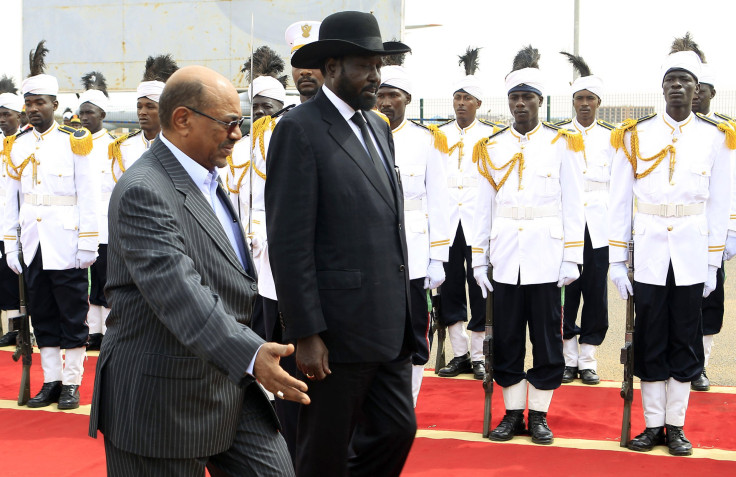Sudan, South Sudan Promise To Keep Oil Flowing, But Old Disputes Remain Unresolved

The presidents of Sudan and South Sudan are two of Africa's oldest rivals, but they put their differences aside briefly to assure the world that the flow of oil between their countries would not be disrupted.
South Sudanese President Salva Kiir flew to Khartoum on Tuesday to meet with Sudanese President Omar al-Bashir. It was only his second visit to Sudan's capital since the countries separated. At a press conference, Bashir told reporters that ongoing disagreements would not imperil oil exports, which both countries rely on heavily due to a lack of economic diversification.
"We are committed to implement the agreements signed by the two countries," Bashir said, according to Reuters. "We want to leave the problems of the past behind us and open a new page for the benefit of the two people."
South Sudan, the world's youngest country, broke away from Sudan in 2011 following decades of civil war. But border disputes remain deadly, and oil transport disagreements have kept both administrations at odds over the countries' most valuable revenue source.
Landlocked South Sudan seceded with most of the formerly united country's oil fields, but Sudan retains the ports and facilities needed to get that product to market. A row over transport fees led to a 16-month standoff, shuttering production of about 350,000 barrels per day. The shutdown took an immense toll on both economies, which suffered skyrocketing inflation. Sudan implemented harsh austerity measures on an already-pinched populace, while South Sudan was unable to afford much beyond national defense, at the expense of much-needed infrastructure and development.
Both leaders restarted their oil flow this March, but the disputes are far from over even after Tuesday's meeting. There were hints during the press conference that oil flow could still be affected by ongoing disagreements. Sudan still accuses its neighbor of supporting rebels operating on Sudanese territory, which South Sudan denies. Outside analysts suspect both administrations of backing insurgents across the border.
Both countries also still contest a border territory called Abyei, which is rich in oil and symbolically important to both countries. Tens of thousands of people are still displaced from the territory, a zone of constant conflict until a UN Security Council-enforced ceasefire took effect in 2012.
Kiir and Bashir also addressed bilateral trade on Tuesday, with both presidents acknowledging that opening up the border for commerce would be a step in the right direction. But Bashir has so far refused to take that step due to South Sudan's alleged support of rebels.
"We are not supporting the rebels, and this can be seen in reality," Kiir said, according to AFP. "We have to close the old chapters and open a new page."
© Copyright IBTimes 2025. All rights reserved.



















